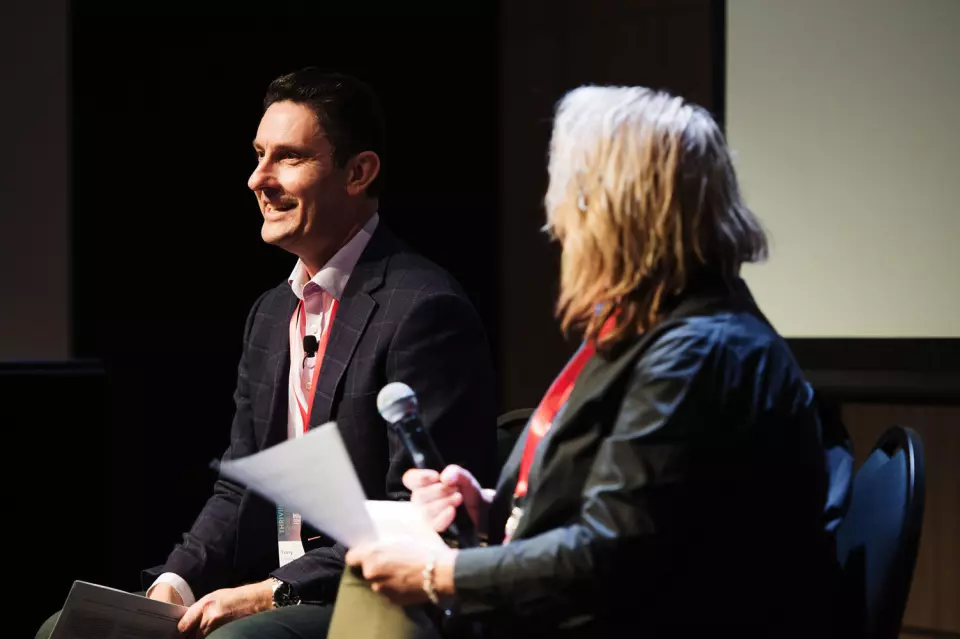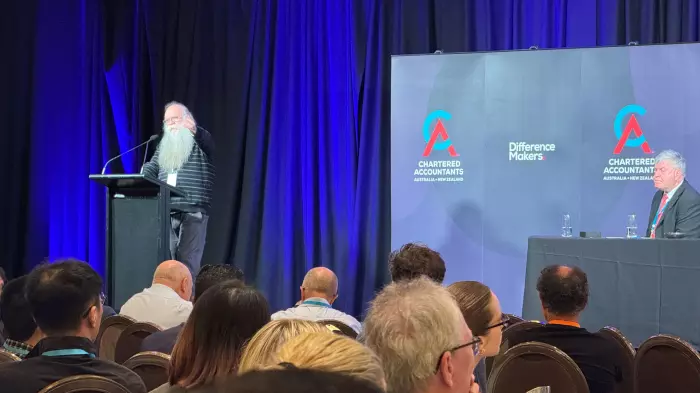One of the lingering ‘long Covid’ effects is a disrupted talent pool, adversely impacting sectors including aviation, hospitality, retail, travel, and tourism. That hasn’t been helped by major structural changes in the delivery of vocational education and training, creating doubt as to whether employers should engage in credentialed training.
“Covid essentially shut down the talent pipeline for multiple industries, especially hospitality, travel, tourism,” says ServiceIQ Executive Director Tony Laskey. “People were laid off, which is an immediate effect. But those who may have considered joining these industries were dissuaded as for quite some time as these sectors looked more volatile than others and at the mercy of border closures.”
Recent research underscores the scale of these challenges. A 2024 Ministry of Business, Innovation and Employment (MBIE) report notes that firms across all sectors, including hospitality and tourism, are experiencing significant personnel shortages at all levels, driven by an “absolute” lack of people with required skills and experience.
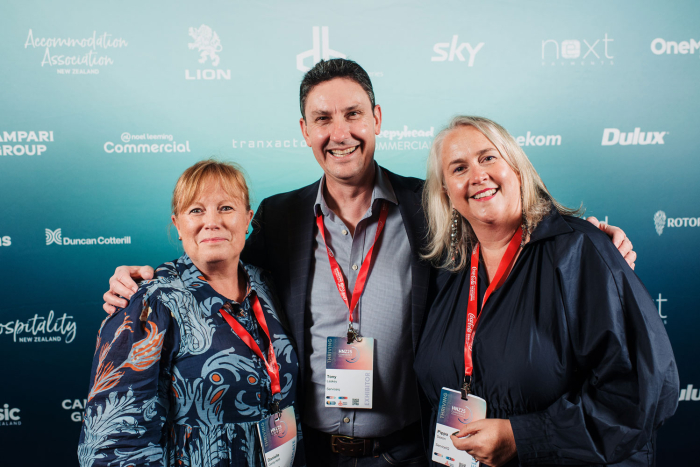 Danielle Genty-Nott (GM Industry Engagement),Tony Laskey (Executive Director), and Pippa Saxon (National Account Manager) at ServiceIQ, all at Wellington.
Danielle Genty-Nott (GM Industry Engagement),Tony Laskey (Executive Director), and Pippa Saxon (National Account Manager) at ServiceIQ, all at Wellington.
The report found the service sector’s reliance on international visitors and seasonal peaks, combined with post-Covid border restrictions, has intensified the issue. While arrivals rebounded to 3.4 million in 2024, this is still well below pre-Covid levels of 3.9 million.
It’s not just existing and potential employees who were jaded by the prospects of these vocations. Schools, parents, and teachers began questioning career stability, resulting in reduced interest and enrolments.
There is, however, a path forward – and it begins with on-the-job training. Providers like ServiceIQ are urging both candidates and employers to take action, kickstart learning, and play an active role in shaping a stronger future.
ServiceIQ’s ‘Make Today the Day’ campaign encourages businesses and employees to seize the moment and invest in training. With a focus on practical, accessible, and affordable vocational education, the organisation aims to bridge skills gaps, lift workforce capability, and help ensure New Zealand remains a world-class destination.
When tourism began to recover, employment was and remains on the rise. While undoubtedly a positive development, Laskey says there’s a devil in the detail because training lagged. “When the borders reopened and things started to get busy, businesses were kind of grabbing anybody they could,” Laskey says. “They didn’t really have the time to invest in training –that brought with it inefficiency, added stress, and a lack of personal development for their employees.”
While entry-level roles can often be filled quickly, Laskey says the real challenge lies in developing leadership. “Where employers see the gap, and we see it regularly, is between being on the tools to being at the next level. And we’re talking about being the supervisor, the team leader, the shift manager.”
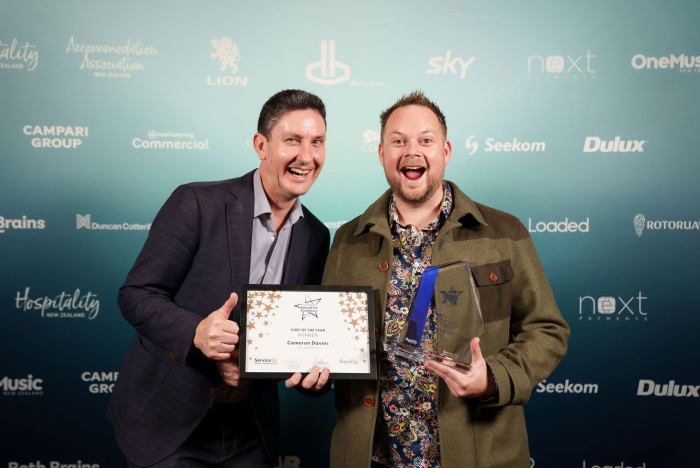 Tony Laskey and Cameron Davies, winner of the 2025 Chef of the Year at Hospitality NZ Awards, co-owner of The Fat Duck in Te Anau
Tony Laskey and Cameron Davies, winner of the 2025 Chef of the Year at Hospitality NZ Awards, co-owner of The Fat Duck in Te Anau
These skills go beyond the ‘hands on the tools’ activities and extend to managing people, planning shifts, provisioning equipment and supplies, or ensuring regulatory and legal compliance.
Laskey says ServiceIQ’s programmes offer structured pathways developing these skills. Level 3 and Level 4 business programmes cover competencies like teamwork, effective communication in multicultural workplaces, problem-solving, and strategic planning. And with a pathway into leadership roles, individuals can start seeing service industries as career choices, rather than just youth, temporary or seasonal work.
Laskey says there is work to be done to encourage young people to see the services sector as a career and not merely a job. “There are multiple doors to progression in these industries,” he stresses. “But the key to unlocking those doors is training and upskilling.”
Creating a path doesn’t have to involve crippling debt, either, unlike some tertiary options which can leave students with degrees for which there are limited employment options. “As our courses are available to people in work, it’s earn while you learn, rather than borrow to study. Training is done on the job, combining practical experience with theoretical knowledge, closely aligned with workplace needs.”
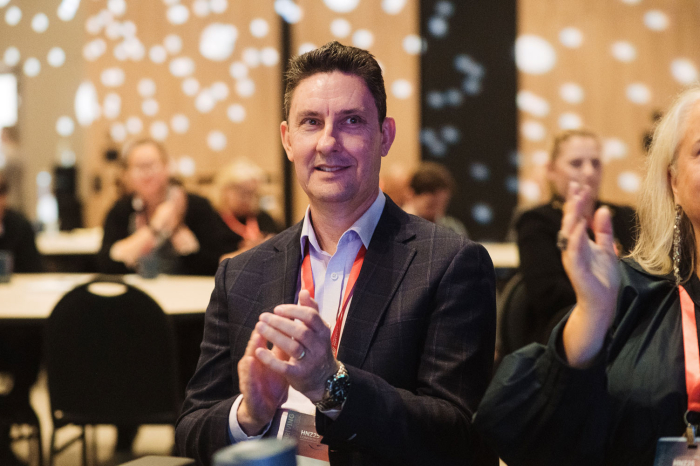 Tony Laskey at the 2025 Hospitality NZ Conference
Tony Laskey at the 2025 Hospitality NZ Conference
Along with learning and assessment resources, ServiceIQ courses are supported by 12 service sector advisers across New Zealand offering personalised support, including pastoral care and assistance with language, literacy, or numeracy challenges. Notably, prices for 4 to 12-month on-the-job qualifications are in the range of $50 to $200, with 2 to 3 year apprenticeships costing $89 per month.
“At the end you get real skills backed by a NZQA qualification. What you don’t get is a mountain of debt,” Laskey stresses.
Addressing structural challenges including the establishment and subsequent disestablishment of Te Pūkenga, Laskey says uncertainty shouldn’t interfere with action. “The noise can be unsettling. Our message is: make today the day. Your team have the potential, their talents are needed, and we can help elevate their skills so they can grow your business. Sign up your team and start training today.”
There’s a bigger picture, too. As New Zealand competes globally for tourists, delivering world-class experiences through skilled staff is crucial. “As a nation, we need to know that when visitors arrive, they have world-class experiences,” he stresses. “We’ve got the culture, we’ve got the scenery, we have all the ingredients. Now we need trained people who make it happen and make it memorable.”
Make today the day to invest in your team’s future — explore on-the-job training options with ServiceIQ.



